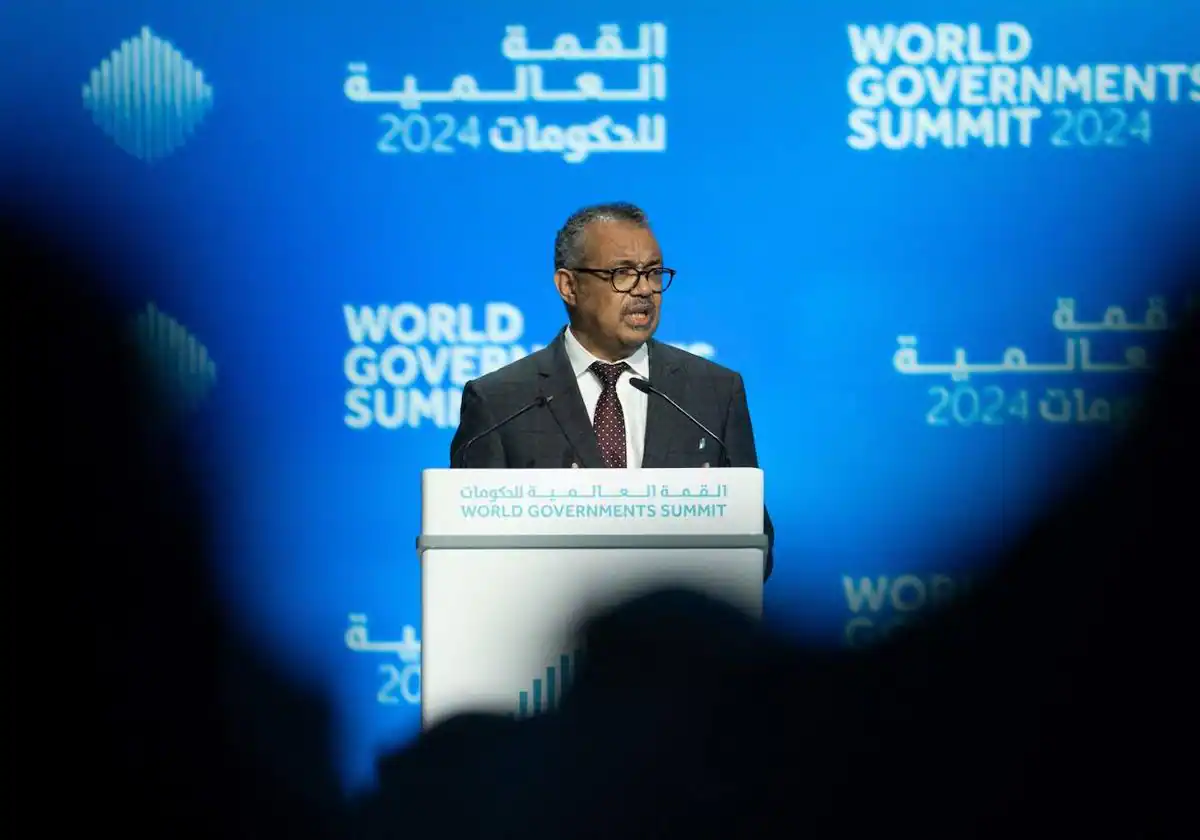WHO warns of a new global pandemic

The director-general of the World Health Organization (WHO), Tedros Adhanom Ghebreyesus, has warned that “the question is no when the next pandemic will occur” and that it could be caused by the flu virus, a new coronavirus or a still-unknown disease. Which is called “Disease X”.
Tedros said this within the framework of the World Government Summit, an annual event that is being held in Dubai, United Arab Emirates. There, he reiterated that, despite “progress” in the COVID-19 phase, the world is “not ready for a pandemic.”
“The cycle of panic and carelessness is starting again.” When attention turns to the many other crises facing our world, the painful lessons we have learned risk being forgotten. But if we don’t learn those lessons, we will pay a heavy price next time,” he declared.
The WHO director noted that, recently, ‘Disease X’ has received a lot of attention, but “it is nothing new.” The term was first used in 2018 as a placeholder for a disease that is not yet known, but for which it is still possible to prepare.
“COVID-19 was ‘Disease X,’ a new pathogen that caused a new disease. But there will be another ‘Disease X’, or ‘Disease Y’, or ‘Disease Z’. And, as things stand, the world is not prepared for the next ‘Disease X’ and the next pandemic,” Tedros stressed.
In his opinion, “if this happened tomorrow”, the world would face many of the same problems it faced with COVID-19.
International agreement on pandemic response
For this reason, in December 2021, WHO member states met in Geneva and agreed to develop an international agreement on pandemic preparedness and response, a legal framework for working together to stay safe and protect people. It is a legally binding agreement.
The countries have set a deadline to complete the agreement in time for its adoption at the World Health Assembly in May this year. Only 15 weeks left.
However, according to Tedros, there are currently “two major obstacles” to meeting that deadline. The first is a set of issues on which countries have not yet been able to reach consensus.
The second obstacle is “the web of lies and conspiracy theories about the agreement: that it is a power grab by WHO; that it would cede sovereignty to WHO; This would give WHO the power to impose lockdowns or vaccination orders on countries; that it is an attack on freedom; that WHO will not allow people to travel; And WHO wants to control people’s lives,” lamented the health organization’s director general.
For Tedros, these “lies” endanger the health of the world’s population. “These statements are completely, completely and unequivocally false. He concluded, “The agreement on the pandemic will not give WHO any power over any state or any individual.”
“We cannot allow this historic agreement, this milestone in global health, to be destroyed by those spreading falsehoods, either intentionally or unintentionally,” Tedros said.
In this sense, Tedros reminded that WHO did not impose anything on anyone during the COVID-19 pandemic. “No lockdown, no mask mandatory, no vaccine mandatory. We don’t have the power to do it, we don’t want it, and we’re not trying to achieve it,” he stressed.
Therefore, he reminded that the work of the organization is “to support governments with evidence-based guidance, advice and, where necessary, supplies to help them protect their populations.”
Rather than renouncing sovereignty, the agreement reaffirms national sovereignty and national responsibility in its fundamental principles. In fact, the agreement is “an exercise of sovereignty in itself.” These are commitments that countries make to protect themselves and others from the pandemic.